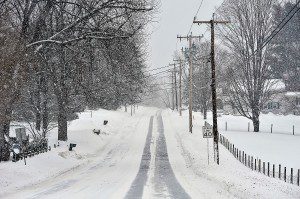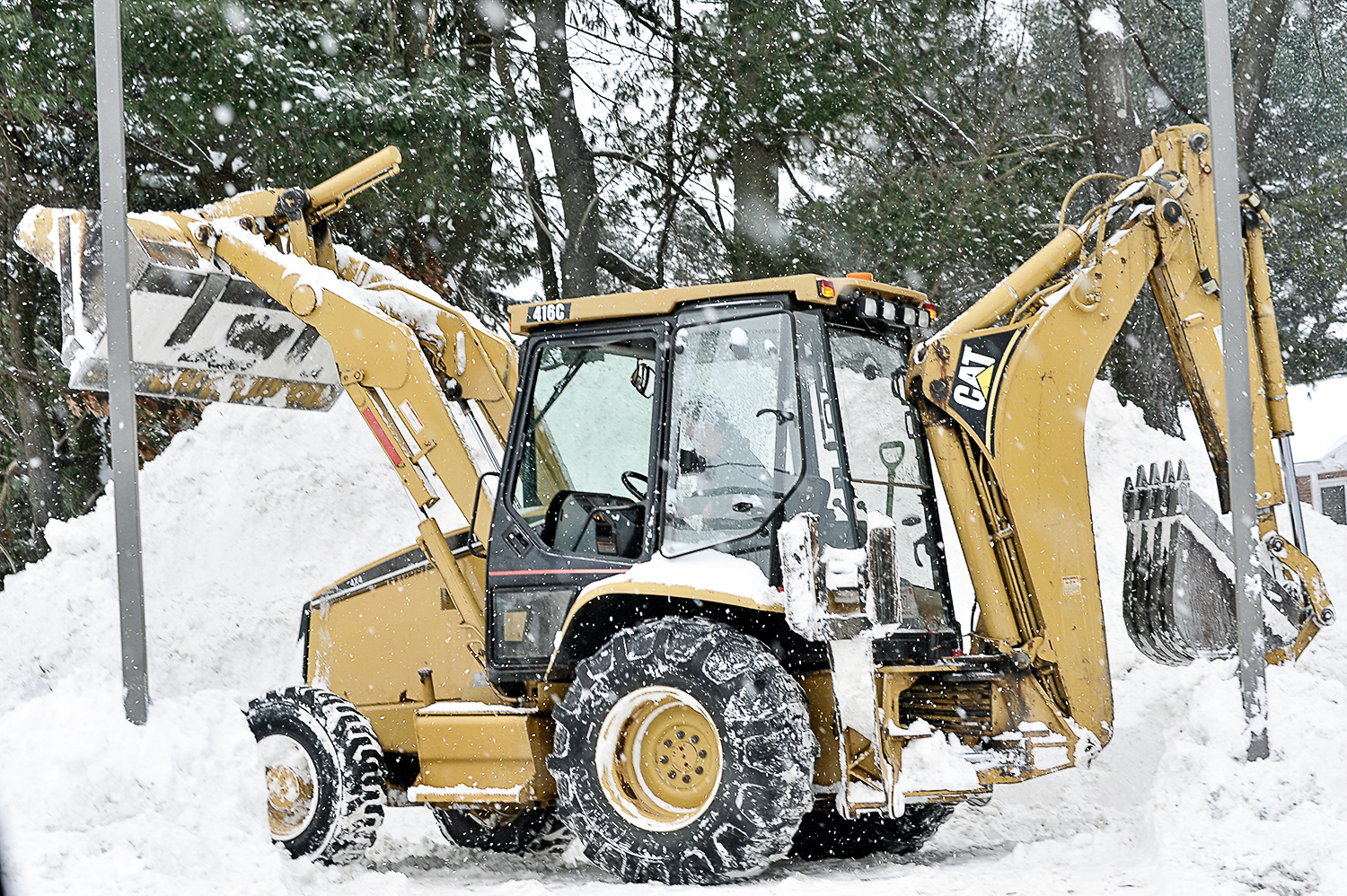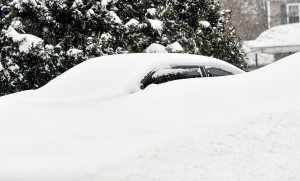WESTFIELD – The city of Westfield’s Department of Public Works has had a busy year so far and Deputy Superintendent Casey Berube said the DPW is “chipping away at it.”
“We’re going to be cutting the contractors loose shortly and bringing our guys in,” said Berube at around 5:30 p.m. yesterday. “They’re pretty road weary, as you can imagine.”
Workers had been tackling the storm, which deposited about a half-foot of snow yesterday, clearing the city’s over 250 miles of road for most of the day and Berube said that over 70 city-contracted workers had started at 3 a.m. Monday and wrapped up at 6 p.m. Berube added that the city ordered 39,000 tons of salt last year in preparation for weather and conditions such as these.
“It has been a busy winter thus far. It seems like we’ve been at it every three days,” he said. “The rumor is that we’re supposed to get another significant event on Thursday going into Friday.”
Although Gov. Charlie Baker didn’t put out a statewide travel ban yesterday, Berube is advising residents to use the city’s roadways as little as possible to allow workers to clear the streets with minimal headaches. Helping to fish a motorist out of snow bank deters from their main objective of cleaning up the streets.
“During any kind of snow removal operations, especially when we have all the plow trucks out, it helps us out if cars stay off the road,” he said. “There’s nothing more frustrating than getting a call from police dispatch saying they need a sand or plow truck (to help a motorist) because it takes a worker out of their route.”

There were few drivers along Feeding Hills Road in Southwick as another winter snowstorm moved through the area yesterday. (Photo by Frederick Gore)
“A lot of cars, especially if they don’t have four-wheel-drive or their tires are due for a replacement, get stranded and it just adds to the strain of the department,” said Berube.
Yesterday, state environmental officials gave cities and towns the green light to dump accumulating snow into open water if necessary.
The Department of Environmental Protection cited the challenges involved in getting rid of the historic levels of snowfall that has fallen in recent weeks. Local communities may seek permission to take emergency steps that allow disposal of snow in the ocean or other bodies of water, which is normally prohibited.
Guidelines issued by the agency require that snow only be dumped in waterways with strong enough flow to prevent ice dams from forming. Disposal of snow is also prohibited in drinking water reservoirs, saltmarshes, vegetated wetlands, certified vernal pools, shellfish beds and mudflats.
Trucks carrying snow are also prohibited from areas where they may cause shoreline damage or erosion.




